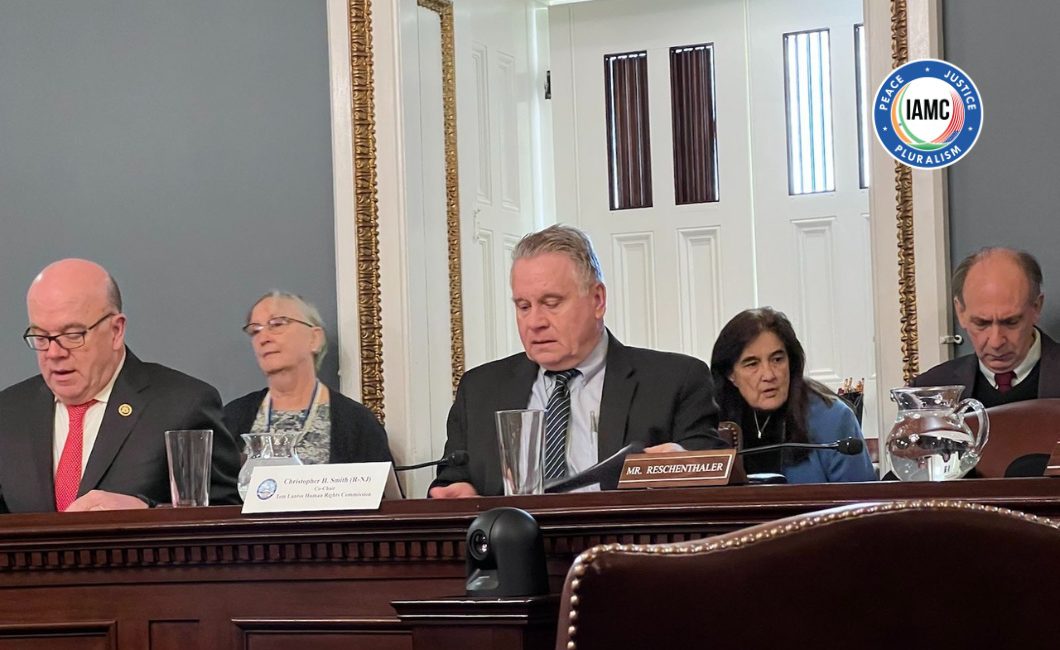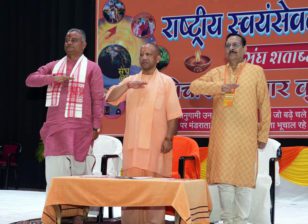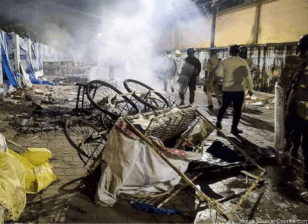Indian Muslims, Christians, Sikhs, suffering under “culture of impunity,” Modi “doesn’t care”: US Lawmaker
Washington, D.C. (March 21, 2024)— Congressman Chris Smith, co-chair of the bipartisan Tom Lantos Human Rights Commission within the United States Congress, stated that he was “very angry” seeing the suffering of Indian religious minorities under Prime Minister Narendra Modi’s government. He called India a country of “huge particular concern for their egregious behavior.”
“Modi looks at [our concerns] and says he doesn’t care,” said Smith. “I’m very frustrated and very angry because people are suffering – the Muslims, the Christians, the Sikhs in Punjab… so many are suffering because of this incredibly concerning culture of impunity.”
Smith was speaking at a Tom Lantos Commission hearing titled “India: Recent Human Rights Reporting”. His concern was shared by Congressman Jim McGovern, co-chair of the Commission, who cited the US State Department’s reporting on India’s deteriorating human rights record.
“Many of the problems that most worry human rights observers have been linked to current Prime Minister Modi’s push to reshape India’s secular democracy into a Hindu first nation,” said McGovern.
https://www.youtube.com/watch?v=0tIu8dQvMDU&ab_channel=TomLantosHumanRights
Several human rights experts delivered testimony at the event, including Stephen Schneck, Commissioner for the United States Commission on International Religious Freedom (USCIRF), who discussed repeated calls by USCIRF to designate India as a Country of Particular Concern (CPC), a label reserved for the world’s worst offenders of religious freedom.
“The International Religious Freedom (IRFA) act of 1998 requires our State Department to designate any country engaging in particularly severe violations of religious freedom… as a country of particular concern or CPC,” Scnheck said. “India clearly meets these CPC standards under IRFA, not only based on USCIRF’s analysis and public reporting, but by the State Department’s own annual international religious Freedom report.”
Schneck added that it “bewilders” him that the US State Department has repeatedly declined to designate India as a CPC despite surging anti-minority violence and discrimination.
“Without making the CPC designation, it’s as if we’re giving India a free pass,” he said.
Carolyn Nash, Asia Advocacy Director at Amnesty International, demonstrated the “urgency of the crisis in India” by highlighting “rhetoric by BJP officials and supporters intended to stoke religious and ethnic violence; protection by state authorities of mobs that commit these violent acts; arrest, detention, and intimidation of government critics; the use and export of invasive spyware for unlawful surveillance; [and] the government’s weaponization of laws to justify these abuses.”
In particular, Nash highlighted India’s recent announcement to implement the discriminatory Citizenship Amendment Act (CAA), a law that targets Muslims’ citizenship rights, and urged Congress to take action against such discriminatory measures.
“The recent rollout of the CAA and its discriminatory citizenship process could set the stage for millions to be deprived of citizenship,” she said. “As India prepares for elections, we urge the US government, both members of Congress and administration officials, to communicate to the government of India that the US will condemn hateful rhetoric, legal harassment, of civil society and the targeting of religious and ethnic groups.”
“In 2021, [Freedom House] changed [India’s] rating from free to partly free. This democratic backsliding has been driven by… a crackdown on freedom of expression [and] restrictions on civic space,” said Adrian Shabaz, Vice President for Research at Freedom House. “Many of these negative trends are the result of policies enacted by Prime Minister Narendra Modi and the ruling BJP… [Congress] must urge the Indian government to respect human rights online, specifically to refrain from imposing connectivity restrictions or blocks on social media platforms, and to refrain from censoring expression.”
“Congress needs to more forcefully urge President Biden to speak directly to Prime Minister Modi about these concerns,” said John Sifton, Asia Advocacy Director at Human Rights Watch. “President Biden’s embrace of Modi and reluctance to criticize the government for this situation will be understood by India to mean that the worsening conduct will have no consequences, and that cannot be the situation.”
“India has expanded the scope of [its counterterrorism] laws in ways that have resulted in wide ranging adverse impacts on nonprofit organizations, as well as human rights defenders who have been targeted with prosecutions… for exercising their civic freedoms and critiquing the government,” said Waris Husain, Legal Advisor at the American Bar Association Center for Human Rights. “In order to retain its long running security relationship with India, US policymakers must raise these issues with their Indian counterparts.”
“The Pew Research center rates India in the top seven of all countries for social hostility on the basis of religion,” said Isaac Six, Senior Director of Advocacy at Global Christian Relief. “Congress and the [Biden] administration should identify Indian government agencies and officials responsible for severe religious freedom and other human rights violations and enact targeted sanctions against those entities.”
Reacting to the Commission’s hearing, IAMC President Mohammed Jawad said, “We commend the Tom Lantos Commission for shedding light on the alarming human rights situation in India under the Modi government. It is imperative for the United States Congress and the Biden administration to take a firm stance and hold the Modi government accountable for its egregious treatment of religious minorities. We urge swift and decisive action to address these violations and uphold the principles of democracy and religious freedom both at home and abroad.”




